
Thomas Aquinas
Philosophy of Saint Thomas Aquinas, a Dominican friar and theologian of Italy and the most influential thinker of the medieval period, combined doctrine of Aristotle and elements of Neoplatonism, a system that Plotinus and his successors developed and based on that of Plato, within a context of Christian thought; his works include the Summa contra gentiles (1259-1264) and the Summa theologiae or theologica (1266-1273).
Saint Albertus Magnus taught Saint Thomas Aquinas.
People ably note this priest, sometimes styled of Aquin or Aquino, as a scholastic. The Roman Catholic tradition honors him as a "doctor of the Church."
Aquinas lived at a critical juncture of western culture when the arrival of the Aristotelian corpus in Latin transl
If you like author Thomas Aquinas here is the list of authors you may also like
Buy books on AmazonThomas Aquinas similar authors
-
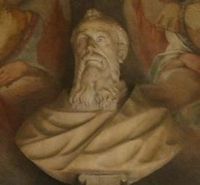
Peter Damian
Saint Peter Damian (Latin: Petrus Damianus; Italian: Pietro or Pier Damiani; c. 1007 – 21 or 22 February 1072 or 1073) was a reforming Benedictine monk and cardinal in the circle of Pope Leo IX. Dante placed him in one of the highest circles of Paradiso as a great predecessor of Saint Francis of Assisi and he was declared a Doctor of the Church in 1828. His feast day is February 21.
Buy books on Amazon -
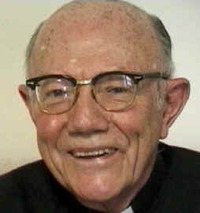
W. Norris Clarke
A native New Yorker, Father Clarke was born in 1915 and attended Loyola High School. He graduated, enrolled at Georgetown University in 1931 and entered the Society of Jesus two years later. His deepening interest in Thomist philosophy was developed at College St. Louis in England in 1936. He continued his studies at Fordham, earning a master’s in philosophy in 1939. He earned his doctorate from Catholic University of Louvain in Belgium, where he studied under Roman Catholic philosopher Louis De Raeymaeker. Father Clarke was ordained into the priesthood in 1945 and joined the Fordham faculty 10 years later as an assistant professor of philosophy.
Buy books on Amazon
He taught for three decades before becoming an emeritus professor in 1985. "Norrie Clarke was th -

Boethius
Roman mathematician Anicius Manlius Severinus Boethius, imprisoned on charges of treason, wrote The Consolation of Philosophy , his greatest work, an investigation of destiny and free will, while awaiting his execution.
Buy books on Amazon
His ancient and prominent noble family of Anicia included many consuls and Petronius Maximus and Olybrius, emperors. After Odoacer deposed the last western emperor, Flavius Manlius Boethius, his father, served as consul in 487.
Boethius entered public life at a young age and served already as a senator before the age of 25 years in 504. Boethius served as consul in 510 in the kingdom of the Ostrogoths.
In 522, Boethius saw his two sons serve as consuls. Theodoric the Great, king, suspected Boethius of conspiring with the -

Edith Stein
Edith Stein, also known as St. Teresa Benedicta of the Cross, OCD, (German: Teresia Benedicta vom Kreuz, Latin: Teresia Benedicta a Cruce) (12 October 1891 – 9 August 1942), was a German Jewish philosopher who converted to the Roman Catholic Church and became a Discalced Carmelite nun. She is a martyr and saint of the Catholic Church.
Buy books on Amazon
She was born into an observant Jewish family, but was an atheist by her teenage years. Moved by the tragedies of World War I, in 1915 she took lessons to become a nursing assistant and worked in a hospital for the prevention of disease outbreaks. After completing her doctoral thesis in 1916 from the University of Göttingen, she obtained an assistantship at the University of Freiburg.
From reading the works of th -

Albertus Magnus
born in perhaps 1206
Buy books on Amazon
German religious philosopher Saint Albertus Magnus, originally Albert, count von Bollstadt, and also noted as the teacher of Saint Thomas Aquinas, sought to apply methods of Aristotle to current scientific questions.
Also known as Albert the Great and Albert of Cologne, this member of the Catholic order of preachers (Dominicans) served as friar and from 1260 to 1262 as bishop of Regensburg. During his lifetime, people knew him as doctor universalis and doctor expertus and later appended the term magnus ("the great") to his name. Scholars, such as James Athanasius Weisheipl and Joachim Roland Söder, referred to this greatest theologian of the Middle Ages. The Church honors him among its 35 doctors.
https://en.wikipedia.or -
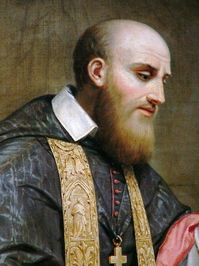
Francis de Sales
Francis de Sales, C.O., T.O.M., A.O.F.M. Cap. (French: François de Sales; Italian: Francesco di Sales) was a Bishop of Geneva and is honored as a saint in the Roman Catholic Church. His father sent him to a good school when he was young, and he received spiritual formation from the Jesuits. After a disturbing spiritual fear of being condemned, he eventually resolved his problem and decided to dedicate his life to God in 1587. He became a doctor of law at the age of 24 at the Jesuit College of Clermont, Paris, and was ordained a priest by Bishop Claude de Granier and stationed in Geneva in 1593. He became bishop of Geneva in 1602.
Buy books on Amazon
Francis de Sales is the author of various collections of sermons on Mary, Lent, prayer and Christmastide. He was -
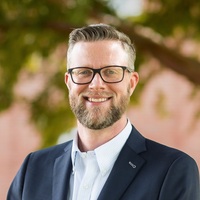
Jason Thacker
Jason Thacker serves as an assistant professor of philosophy and ethics at Boyce College in Louisville, KY. He also is a research fellow in Christian ethics and director of the research institute at The Ethics and Religious Liberty Commission of the Southern Baptist Convention. He is the author of several books including "Following Jesus in the Digital Age" and "The Age of AI: Artificial Intelligence and the Future of Humanity". He also serves as the editor of "The Digital Public Square: Christian Ethics in a Technological Society" and co-editor of the Essentials in Christian Ethics series with B&H Academic. He is the project leader and lead drafter of "Artificial Intelligence: An Evangelical Statement of Principles", and his work has been
Buy books on Amazon -
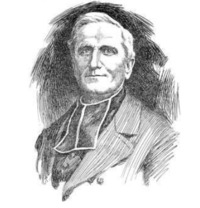
Joseph Simler
P Joseph Simler was a Catholic priest and the fourth Superior General of the Society of Mary (1876-1905).
Buy books on Amazon -

Prosper Guéranger
Dom Prosper Louis Pascal Guéranger, Servant of God, was a Benedictine priest, abbot of Solesmes Abbey (which he founded in the disused priory of Solesmes) and founder of the French Benedictine Congregation (now the Solesmes Congregation). Dom Guéranger was the author of The Liturgical Year, which covers every day of the Catholic Church's Liturgical Cycle in 15 volumes. He was well regarded by Pope Pius IX, and was a proponent of the dogmas of papal infallibility and the Immaculate Conception. Dom Guéranger is credited with reviving the Benedictine Order in France, and revitalizing the Tridentine Mass.
Buy books on Amazon
https://en.wikipedia.org/wiki/Prosper... -
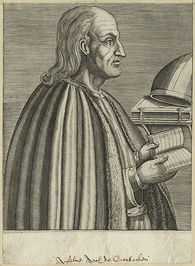
Anselm of Canterbury
born 1033
Buy books on Amazon
People best know Italian-born English theological philosopher and prelate Saint Anselm for his ontological argument for the existence of God.
He entered the Benedictine order at the abbey of Bec at the age of 27 years in 1060 and served as abbot in 1079.
Anselm, a Benedictine monk of monastery at Bec, from 1093 held the office of the Church of archbishop of Canterbury. Called the founder of scholasticism, this major famous originator of the satisfaction theory of atonement influenced the west. He served as archbishop of Canterbury under William II. From 1097, people exiled him to 1100.
As a result of the investiture controversy, the most significant conflict between Church and state in Medieval Europe, Henry I again from 1105 exile -
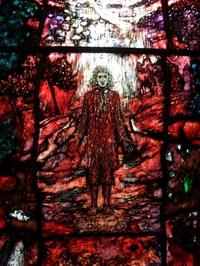
Thomas Traherne
Thomas Traherne, MA (1636 or 1637 – ca. 27 September 1674) was an English poet, clergyman, theologian, and religious writer. Little information is known about his life. The intense, scholarly spirituality in his writings led to his being commemorated by the Anglican Church on 10 October (the anniversary of his death in 1674).
Buy books on Amazon
The work for which he is best known today is the Centuries of Meditations, a collection of short paragraphs in which he reflects on Christian life and ministry, philosophy, happiness, desire and childhood. This was first published in 1908 after having been rediscovered in manuscript ten years earlier. His poetry likewise was first published in 1903 and 1910 (The Poetical Works of Thomas Traherne, B.D. and Poems of Felic -

Lon L. Fuller
Lon Luvois Fuller was a noted legal philosopher, who wrote The Morality of Law in 1964, discussing the connection between law and morality. Fuller was professor of Law at Harvard University for many years, and is noted in American law for his contributions to the law of contracts. His debate with H. L. A. Hart in the Harvard Law Review (Vol. 71) was of significant importance for framing the modern conflict between legal positivism and natural law. Fuller was an important influence on Ronald Dworkin, who was one of his students at Harvard Law.
Buy books on Amazon -

FrJacob Powell
Father Powell is a native Texan who grew up in a Roman Catholic family. He is one of four children who attended a non-denominational school with very few Catholics. He began learning and loving his Faith by altar-serving and having faith-based discussions with friends and teachers. Through prayer and study, he discerned a call to the priesthood. After a year of college at Texas Tech University, he joined the Conventual Franciscans in the St. Bonaventure Province. After nearly two years of further discernment, he left the order and returned to Texas Tech University for another year of learning. By the end of this year, he decided to join the Diocese of Lubbock, Texas. He was sent to St. Charles Borromeo Seminary for two years to finish his d
Buy books on Amazon -
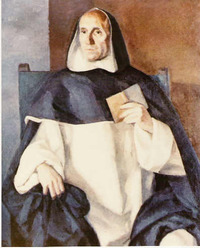
Francisco de Vitoria
Francisco de Vitoria, OP (Francisco de Victoria; c. 1483, Vitoria – 12 August 1546, Salamanca) raised in Burgos, was a Spanish Renaissance Roman Catholic philosopher, theologian and jurist, founder of the tradition in philosophy known as the School of Salamanca, noted especially for his contributions to the theory of just war and international law. He has in the past been described by some scholars as the "father of international law", though contemporary academics have suggested that such a description is anachronistic, since the concept of an "international law" did not truly develop until much later. Because of Vitoria's conception of a "republic of the whole world" (res publica totius orbis) he recently has been labeled "founder of glob
Buy books on Amazon -

D.M. Armstrong
David Malet Armstrong (born 8 July 1926), often D. M. Armstrong, is an Australian philosopher. He is well-known for his work on metaphysics and the philosophy of mind, and for his defence of a factualist ontology, a functionalist theory of the mind, an externalist epistemology, and a necessitarian conception of the laws of nature. He was elected a Foreign Honorary Member of the American Academy of Arts and Sciences in 2008.
Buy books on Amazon -

Andrew Davison
Andrew Davison (DPhil, University of Oxford) is the tutor in doctrine at Westcott House, University of Cambridge, in Cambridge, England. He has taught theology at St. Stephen’s House, Oxford, and is known for his writing on doctrine, mission, and the church. He is coauthor of For the Parish: A Critique of Fresh Expressions and joint editor of Lift Up Your Hearts.
Buy books on Amazon -

Abraham Lincoln
Abraham Lincoln, the sixteenth president of the United States from 1861, led during the Civil War, and emancipated slaves in the south in 1863; shortly after the end, John Wilkes Booth assassinated him.
Buy books on Amazon
Abraham Lincoln, an American lawyer, politician, and man, served until 1865. Lincoln defended the American constitutional nation, defeated the insurgent Confederacy, abolished, expanded the power of the Federal government, and modernized the economy.
A mother bore him into poverty in a log cabin in Kentucky, and parents reared on the frontier, primarily in Indiana. He educated as a lawyer in Whig party, joined legislature, and represented Illinois. In 1849, he returned to his successful law practice in Springfield, Illinois.
The Kansas–Nebras -

Joseph S. Nye Jr.
Joseph Samuel Nye Jr. was an American political scientist. He and Robert Keohane co-founded the international relations theory of neoliberalism, which they developed in their 1977 book Power and Interdependence. Together with Keohane, he developed the concepts of asymmetrical and complex interdependence. They also explored transnational relations and world politics in an edited volume in the 1970s. More recently, he pioneered the theory of soft power. His notion of "smart power" ("the ability to combine hard and soft power into a successful strategy") became popular with the use of this phrase by members of the Clinton Administration and the Obama Administration. These theories from Nye are very commonly seen in courses across the U.S., su
Buy books on Amazon -

John Finnis
John Mitchell Finnis (born 28 July 1940) is an Australian legal philosopher, jurist and scholar specializing in jurisprudence and the philosophy of law. He is currently the Biolchini Family Professor of Law at Notre Dame Law School and Permanent Senior Distinguished Research Fellow at the Notre Dame Center for Ethics and Culture. He was Professor of Law & Legal Philosophy at the University of Oxford from 1989 to 2010, where he is now professor emeritus. He acted as a constitutional adviser to successive Australian Commonwealth governments in constitutional matters and bilateral relations with the United Kingdom.
Buy books on Amazon -
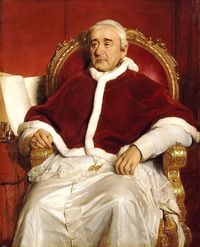
Pope Gregory XVI
Bartolomeo Alberto Cappellari reigned as Pope Gregory XVI from 2 February 1831 to his death in 1846. He is the most recent pope to take the pontifical name "Gregory", and the most recent non-bishop to become pope. Strongly conservative and traditionalist, he opposed modernising reforms in the Papal States and throughout Europe, seeing them as fronts for revolutionary leftism.
Buy books on Amazon -
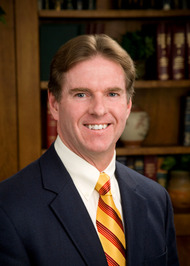
Kevin Vost
Kevin Vost, Psy. D. (b. 1961) has taught psychology at the University of Illinois at Springfield, Lincoln Land Community College, and MacMurray College. He is a Research Review Committee Member for American Mensa, which promotes the scientific study of human intelligence.
Buy books on Amazon
He enjoys reading the Classics (especially Aristotle and the Stoics) and St. Thomas Aquinas in his spare time. -

Plato
Plato (Greek: Πλάτων), born Aristocles (c. 427 – 348 BC), was an ancient Greek philosopher of the Classical period who is considered a foundational thinker in Western philosophy and an innovator of the written dialogue and dialectic forms. He raised problems for what became all the major areas of both theoretical philosophy and practical philosophy, and was the founder of the Platonic Academy, a philosophical school in Athens where Plato taught the doctrines that would later become known as Platonism.
Buy books on Amazon
Plato's most famous contribution is the theory of forms (or ideas), which has been interpreted as advancing a solution to what is now known as the problem of universals. He was decisively influenced by the pre-Socratic thinkers Pythagoras, H -

Ovid
Publius Ovidius Naso (20 March 43 BC – AD 17/18), known in English as Ovid was a Roman poet who lived during the reign of Augustus. He was a younger contemporary of Virgil and Horatius, with whom he is often ranked as one of the three canonical poets of Latin literature. The Imperial scholar Quintilian considered him the last of the Latin love elegists. Although Ovid enjoyed enormous popularity during his lifetime, the emperor Augustus exiled him to Tomis, the capital of the newly-organised province of Moesia, on the Black Sea, where he remained for the last nine or ten years of his life. Ovid himself attributed his banishment to a "poem and a mistake", but his reluctance to disclose specifics has resulted in much speculation among schol
Buy books on Amazon -

Friedrich Nietzsche
Friedrich Wilhelm Nietzsche was a German classical scholar, philosopher, and critic of culture, who became one of the most influential of all modern thinkers. He began his career as a classical philologist before turning to philosophy. He became the youngest person to hold the Chair of Classical Philology at the University of Basel in 1869 at the age of 24, but resigned in 1879 due to health problems that plagued him most of his life; he completed much of his core writing in the following decade. In 1889, at age 44, he suffered a collapse and afterward a complete loss of his mental faculties, with paralysis and probably vascular dementia. He lived his remaining years in the care of his mother until her death in 1897 and then with his sister
Buy books on Amazon -

Aristotle
Aristotle (Greek: Αριστοτέλης; 384–322 BC) was an Ancient Greek philosopher and polymath. His writings cover a broad range of subjects spanning the natural sciences, philosophy, linguistics, economics, politics, psychology, and the arts. As the founder of the Peripatetic school of philosophy in the Lyceum in Athens, he began the wider Aristotelian tradition that followed, which set the groundwork for the development of modern science.
Buy books on Amazon
Little is known about Aristotle's life. He was born in the city of Stagira in northern Greece during the Classical period. His father, Nicomachus, died when Aristotle was a child, and he was brought up by a guardian. At 17 or 18, he joined Plato's Academy in Athens and remained there until the age of 37 (c. 3 -

Søren Kierkegaard
Søren Aabye Kierkegaard was a prolific 19th century Danish philosopher and theologian. Kierkegaard strongly criticised both the Hegelianism of his time and what he saw as the empty formalities of the Church of Denmark. Much of his work deals with religious themes such as faith in God, the institution of the Christian Church, Christian ethics and theology, and the emotions and feelings of individuals when faced with life choices. His early work was written under various pseudonyms who present their own distinctive viewpoints in a complex dialogue.
Buy books on Amazon
Kierkegaard left the task of discovering the meaning of his works to the reader, because "the task must be made difficult, for only the difficult inspires the noble-hearted". Scholars have interpret -
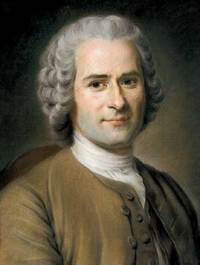
Jean-Jacques Rousseau
Genevan philosopher and writer Jean Jacques Rousseau held that society usually corrupts the essentially good individual; his works include The Social Contract and Émile (both 1762).
Buy books on Amazon
This important figure in the history contributed to political and moral psychology and influenced later thinkers. Own firmly negative view saw the post-hoc rationalizers of self-interest, apologists for various forms of tyranny, as playing a role in the modern alienation from natural impulse of humanity to compassion. The concern to find a way of preserving human freedom in a world of increasingly dependence for the satisfaction of their needs dominates work. This concerns a material dimension and a more important psychological dimensions. Rousseau a fact -

Thomas Hobbes
Thomas Hobbes was a British philosopher and a seminal thinker of modern political philosophy. His ideas were marked by a mechanistic materialist foundation, a characterization of human nature based on greed and fear of death, and support for an absolute monarchical form of government. His 1651 book Leviathan established the foundation for most of Western political philosophy from the perspective of social contract theory.
Buy books on Amazon
He was also a scholar of classical Greek history and literature, and produced English translation of Illiad, Odyssey and History of Peloponnesian War. -

Immanuel Kant
Immanuel Kant was an 18th-century philosopher from Königsberg, Prussia (now Kaliningrad, Russia). He's regarded as one of the most influential thinkers of modern Europe & of the late Enlightenment. His most important work is The Critique of Pure Reason, an investigation of reason itself. It encompasses an attack on traditional metaphysics & epistemology, & highlights his own contribution to these areas. Other main works of his maturity are The Critique of Practical Reason, which is about ethics, & The Critique of Judgment, about esthetics & teleology.
Buy books on Amazon
Pursuing metaphysics involves asking questions about the ultimate nature of reality. Kant suggested that metaphysics can be reformed thru epistemology. He suggested that by understanding the so -

Ralph Waldo Emerson
Ralph Waldo Emerson was born in Boston in 1803. Educated at Harvard and the Cambridge Divinity School, he became a Unitarian minister in 1826 at the Second Church Unitarian. The congregation, with Christian overtones, issued communion, something Emerson refused to do. "Really, it is beyond my comprehension," Emerson once said, when asked by a seminary professor whether he believed in God. (Quoted in 2,000 Years of Freethought edited by Jim Haught.) By 1832, after the untimely death of his first wife, Emerson cut loose from Unitarianism. During a year-long trip to Europe, Emerson became acquainted with such intelligentsia as British writer Thomas Carlyle, and poets Wordsworth and Coleridge. He returned to the United States in 1833, to a life
Buy books on Amazon -
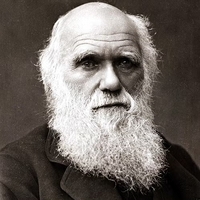
Charles Darwin
Charles Robert Darwin of Britain revolutionized the study of biology with his theory, based on natural selection; his most famous works include On the Origin of Species (1859) and The Descent of Man (1871).
Buy books on Amazon
Chiefly Asa Gray of America advocated his theories.
Works of Jacques Martin Barzun include Darwin, Marx, Wagner (1941).
Charles Robert Darwin, an eminent English collector and geologist, proposed and provided scientific evidence of common ancestors for all life over time through the process that he called. The scientific community and the public in his lifetime accepted the facts that occur and then in the 1930s widely came to see the primary explanation of the process that now forms modernity. In modified form, the foundati -

Niccolò Machiavelli
The Prince , book of Niccolò Machiavelli, Italian political theorist, in
Buy books on Amazon
1513 describes an indifferent ruler to moral considerations with determination to achieve and to maintain power.
Niccolò di Bernardo dei Machiavelli, a philosopher, musician, and poet, wrote plays. He figured centrally in component of the Renaissance, and people most widely know his realist treatises on the one hand and republicanism of Discourses on Livy .
https://en.wikipedia.org/wiki/Niccol%... -

David Hume
David Hume was a Scottish historian, philosopher, economist, diplomat and essayist known today especially for his radical philosophical empiricism and scepticism.
Buy books on Amazon
In light of Hume's central role in the Scottish Enlightenment, and in the history of Western philosophy, Bryan Magee judged him as a philosopher "widely regarded as the greatest who has ever written in the English language." While Hume failed in his attempts to start a university career, he took part in various diplomatic and military missions of the time. He wrote The History of England which became a bestseller, and it became the standard history of England in its day.
His empirical approach places him with John Locke, George Berkeley, and a handful of others at the time as a Brit -

Thomas Traherne
Thomas Traherne, MA (1636 or 1637 – ca. 27 September 1674) was an English poet, clergyman, theologian, and religious writer. Little information is known about his life. The intense, scholarly spirituality in his writings led to his being commemorated by the Anglican Church on 10 October (the anniversary of his death in 1674).
Buy books on Amazon
The work for which he is best known today is the Centuries of Meditations, a collection of short paragraphs in which he reflects on Christian life and ministry, philosophy, happiness, desire and childhood. This was first published in 1908 after having been rediscovered in manuscript ten years earlier. His poetry likewise was first published in 1903 and 1910 (The Poetical Works of Thomas Traherne, B.D. and Poems of Felic -

Friedrich A. Hayek
Friedrich August von Hayek CH was an Austrian and British economist and philosopher known for his defense of classical liberalism and free-market capitalism against socialist and collectivist thought. He is considered by some to be one of the most important economists and political philosophers of the twentieth century. Hayek's account of how changing prices communicate signals which enable individuals to coordinate their plans is widely regarded as an important achievement in economics. Hayek also wrote on the topics of jurisprudence, neuroscience and the history of ideas.
Buy books on Amazon
Hayek is one of the most influential members of the Austrian School of economics, and in 1974 shared the Nobel Memorial Prize in Economics with Gunnar Myrdal "for their p -

Augustine of Hippo
Early church father and philosopher Saint Augustine served from 396 as the bishop of Hippo in present-day Algeria and through such writings as the autobiographical Confessions in 397 and the voluminous City of God from 413 to 426 profoundly influenced Christianity, argued against Manichaeism and Donatism, and helped to establish the doctrine of original sin.
Buy books on Amazon
An Augustinian follows the principles and doctrines of Saint Augustine.
People also know Aurelius Augustinus in English of Regius (Annaba). From the Africa province of the Roman Empire, people generally consider this Latin theologian of the greatest thinkers of all times. He very developed the west. According to Jerome, a contemporary, Augustine renewed "the ancient Faith."
The -

G.K. Chesterton
Gilbert Keith Chesterton was an English writer, philosopher, lay theologian, and literary and art critic.
Buy books on Amazon
He was educated at St. Paul’s, and went to art school at University College London. In 1900, he was asked to contribute a few magazine articles on art criticism, and went on to become one of the most prolific writers of all time. He wrote a hundred books, contributions to 200 more, hundreds of poems, including the epic Ballad of the White Horse, five plays, five novels, and some two hundred short stories, including a popular series featuring the priest-detective, Father Brown. In spite of his literary accomplishments, he considered himself primarily a journalist. He wrote over 4000 newspaper essays, including 30 years worth of weekly co -

Joseph de Maistre
A Savoyard lawyer, diplomat, writer, and philosopher. He was the most influential spokesmen for hierarchical political systems in the period immediately following the French Revolution of 1789. Despite his close personal and intellectual ties to France, Maistre remained throughout his life a loyal subject of the King of Sardinia, whom he served as member of the Savoy Senate (1787–1792), ambassador to Russia (1803–1817), and minister of state to the court in Turin (1817–1821).
Buy books on Amazon
Maistre argued for the restoration of hereditary monarchy, which he regarded as a divinely sanctioned institution, and for the indirect authority of the Pope over temporal matters. According to Maistre, only governments founded upon a Christian constitution, implicit in -
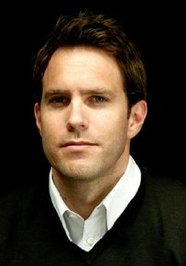
Matt Baglio
Matt Baglio was born and raised in San Diego, California. In 1996, he graduated from the University of California, Santa Barbara, with a B.A. in English Literature. After a stint working as an intern and editorial assistant for TransWorld SNOWboarding magazine, Baglio moved to Los Angeles to pursue a career as a freelancer.
Buy books on Amazon
In 2000, in an effort to expand his horizons, Baglio took a trip to Europe where he met his future wife in Rome. Over the years, he has worked for a variety of news organizations and magazines, including The Associated Press, The American Magazine, The Snowboard Journal, COLORS, Bene, and Homeland Security Today, as well as a host of others.
Baglio's interests are varied, and his work has exposed him to topics as diverse a -
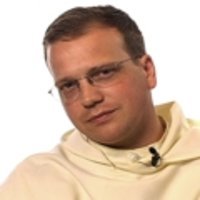
Thomas Joseph White
Father Thomas Joseph White, O.P. is rector of the Pontifical University of Saint Thomas Aquinas in Rome (the “Angelicum”). Fr. White is an expert in Thomistic metaphysics, Christology and Roman Catholic-Reformed ecumenical dialogue. Fr. White converted to Catholicism at age 22, while studying at Brown University.
Buy books on Amazon -
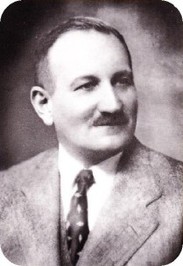
Étienne Gilson
Étienne Henri Gilson was born into a Roman Catholic family in Paris on 13 June 1884. He was educated at a number of Roman Catholic schools in Paris before attending lycée Henri IV in 1902, where he studied philosophy. Two years later he enrolled at the Sorbonne, graduating in 1907 after having studied under many fine scholars, including Lucien Lévy Bruhl, Henri Bergson and Emile Durkheim.
Buy books on Amazon
Gilson taught in a number of high schools after his graduation and worked on a doctoral thesis on Descartes, which he successfully completed (Sorbonne) in 1913. On the strength of advice from his teacher, Lévy Bruhl, he began to study medieval philosophy in great depth, coming to see Descartes as having strong connections with medieval philosophy, although -

-

Hugh of Saint-Victor
Hugh of Saint-Victor, also called Hugo of Saint-Victor was an eminent scholastic theologian who began the tradition of mysticism that made the school of Saint-Victor, Paris, famous throughout the 12th century.
Buy books on Amazon
Of noble birth, Hugh joined the Augustinian canons at the monastery of Hamersleben, near Halberstadt (now in Germany). He went to Paris (c. 1115) with his uncle, Archdeacon Reinhard of Halberstadt, and settled at Saint-Victor Abbey. From 1133 until his death, the school of Saint-Victor flourished under Hugh’s guidance.
His mystical treatises were strongly influenced by Bishop St. Augustine of Hippo, whose practical teachings on contemplative life Hugh blended with the theoretical writings of Pseudo-Dionysius the Areopagite. Hugh’s somew -

Nicolaus Copernicus
The Ptolemaic system dominated medieval cosmology; Nicolaus Copernicus, Polish astronomer, proposed a heliocentric model of the universe and thus contradicted it.
Buy books on Amazon
Polish name: Mikołaj Kopernik
This mathematician studied canon law and medicine at Kraków, Bologna, Rome, Padua, and Ferrara. Copernicus published an interesting early description of his Solar System in Commentariolus in (1512. Ancients invented the equant point, a known device, which actually not exactly slightly offset the Solar System. After not new theories of Aristarchus of Samos and Nicholas of Cusa, Copernicus also worked out his similar idea Solar System in full mathematical detail. The not simpler mathematics in his description required even fewer basic assumptions. Cop -
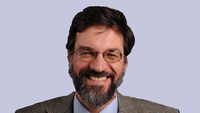
Michael Gorman
Michael Gorman is a graduate of St. Michael's College in the University of Toronto (B.A., Christianity and Culture, 1987), The Catholic University of America (Ph.L., Philosophy, 1989), the State University of New York at Buffalo (Ph.D., Philosophy, 1993), and Boston College (Ph.D., Theology, 1997). After serving as assistant professor of Catholic Studies at Saint Francis Xavier University in Antigonish, Nova Scotia from 1997 to 1999, he joined the faculty of the School of Philosophy at The Catholic University of America, where he has taught ever since.
Buy books on Amazon